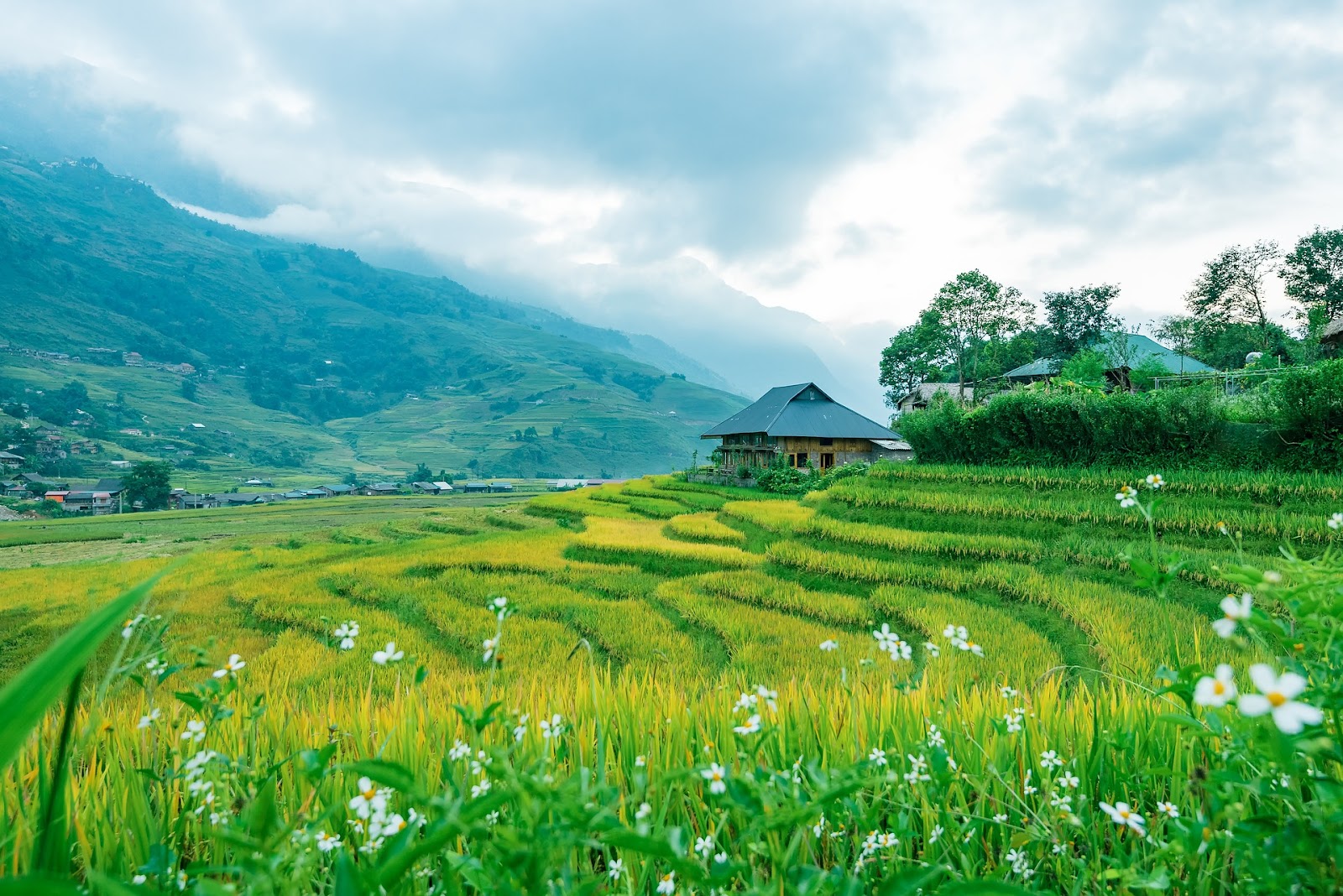“My friend, please stay here, do not return home. When doing so, you make me weep silently. The two flaps of my dress will be soaked with tears...” are the so beautiful words of a popular Quan Ho song named “Goodbye” (or “Gia ban” in Vietnamese), that makes our supposed upcoming pilgrimage to the Lim Festival so meaningful.
Objects of worship: Hieu Trung Hau, inventor of Quan Ho tunes
Time: The 13th day of the first lunar month.
Destination: Lim Town, Tien Du District, Bac Ninh province.
Characteristics: Quan Ho singing and folk games
Time: The 13th day of the first lunar month.
Destination: Lim Town, Tien Du District, Bac Ninh province.
Characteristics: Quan Ho singing and folk games
Should you have interest in Vietnamese culture and festivals, you would ratherf ollow us in this following supposed pilgrimage to the Lim Festival. Itis the done thing in Lim Town, Tien Du District, Bac Ninh Province where thousands of visitors go on a pilgrimage to this festival to beheld at the beginning of Spring. Annually taking place from 13th to15th of the first lunar month, the Lim Festival is among the most impressive festivals, ceremonies and singing in Former Kinh Bac, which now account for a majority of villages in Bac Ninh Province.
The distinguished features
The most typical Lim Festival feature is Quan Ho singing, a special folksong, which includes betel offering, hailing ferry and others.Stretching back over 500 years and recently recognised by UNESCO as part ofhumanity’s intangible heritage, Quan ho is a living historical record of the daily life of Vietnamese people. The beautiful lyrics are of profound meanings, and inclineleading up the pagoda on Lim hill, where Lim Pagoda is located. Lim Pagoda - the place worshipping Mr. Hieu Trung Hau, who invented Quan Ho, is very large and airy with a lot of eucalyptus and couch trees.Like other religious festivals, the Lim Festival goes through all the ritual stages, from the procession to the worshipping ceremony, and includes other activities. The atmosphere is filled with the stream ofmusic and poems, which stimulate people’s feelings. Colorful clothes,conical hats, brassieres and handkerchiefs show the vitality of the spring, human and their surroundings.
Which activities take place in the Lim Festival?
Different from song exchanges in other places, the Quan Ho folk song festival is very well-organised. Visitors from everywhere come to
Hat doi' in Quan ho
enjoy the festival and see the performances of "lien anh" (male singers) and"lien chi" (female singers). These singers are normal farmers of the village and others in daily life, but surprisingly turn out to be the nation's most skilled Quan Ho artists on the special occasion of Lim festival. Their singing performances are consisted of different types of songs, and have ranging stages: in the pagodas’ yard, the communal house’ yard, on the hills, even on boats gently rowed along the river, or elsewhere.
The singers are mostly categorized into two groups, which are called brothers and sisters groups. They dress in their best and distinctive style: men wearing long dress and holding umbrellas, and women, elegant four-flapped dresses with colourful belts, which is their discreet manner, and traditional large flat hats.They have a unique way of approaching one another in the form of songs.
At the beginning of the performance, crowds gather around the singers, andare eager to follow the deft catchy melodies, and savor the humorous,yet often heartfelt lyrics. When each group performs, the audiences listen attentively, while indulging in the traditional chewy festivalfood of An Trau- areca, lime, rose-petal and betel once used to colourteeth and wear away daily troubles. Quan ho is typified by alternateverses sung by different singers, either in pairs or in groups. The twomost popular types of Quan ho are hat doi’ (call-and-response singing)and hat doi (duet singing) groups, which originate hundreds of yearsago, with some of the earliest songs dating back as far as thefifteenth century. According to some scholars, they even began underthe Ly dynasty (1009-1225), when men and women from neighbouredvillages in Bac Ninh province began to sing alternate verses to eachother.
Betel making
Interms of content, the Quan Ho song exchange is multifaceted, involvinganalogies, questions and replies and quizzes on a myriad of subjects.One of the characteristics of Quan ho that remains throughout the timeis the proper verbal and poetic introduction to every tune. Quan hosingers are not only appreciated for their singing ability, but alsofor their skill in leaving an impression of their gracefulness andliterary adeptness on the audience. As a rule, all messages must be insongs with occasionally some explanations to further elucidate theideas. During lunch, the host singers must provide company to theirpartners, offer them food and, again, songs. In the afternoon, thevisiting singers are requested to continue the song exchange up tomidnight when there would be recess and a tea party. Thereafter, thesong exchange goes on until dawn, when guests and hosts and hostesses,again in the form of songs, bid farewell and express keen hope to meetagain some time in the future.
In addition to Quan Ho folksong performances, village festivals also involves many othertraditional games and entertainments, contests, fairs and culturalactivities, such as human chess, water puppetry, lion dances, swinging,wrestling, cock-fighting and more. It is also a traditional opportunityfor young men and women to seek life partners. Young men and women whowant to find their partners often come up hill to sing. There men holdumbrellas while women are wearing flat palm hats, without concern aboutthe sun or rain. Sometimes they can even sing all night to show theirlove, ebullient passion and grace. Besides, visitors can come to theLim Festival to enjoy the weaving competition of the Noi Due girls.They weave and sing Quan Ho songs at the same time.
Beinga special cultural activity in the North, with the Quan Ho folk songperformances and variety of activities, the Lim Festival really impressvisitors. The Festival has become a part of the national culture and atypical folk song festival that is well-loved not only in Bac NinhProvince, but in the Red River Delta region as well.
In addition to Quan Ho folksong performances, village festivals also involves many othertraditional games and entertainments, contests, fairs and culturalactivities, such as human chess, water puppetry, lion dances, swinging,wrestling, cock-fighting and more. It is also a traditional opportunityfor young men and women to seek life partners. Young men and women whowant to find their partners often come up hill to sing. There men holdumbrellas while women are wearing flat palm hats, without concern aboutthe sun or rain. Sometimes they can even sing all night to show theirlove, ebullient passion and grace. Besides, visitors can come to theLim Festival to enjoy the weaving competition of the Noi Due girls.They weave and sing Quan Ho songs at the same time.
Beinga special cultural activity in the North, with the Quan Ho folk songperformances and variety of activities, the Lim Festival really impressvisitors. The Festival has become a part of the national culture and atypical folk song festival that is well-loved not only in Bac NinhProvince, but in the Red River Delta region as well.






0 Comments